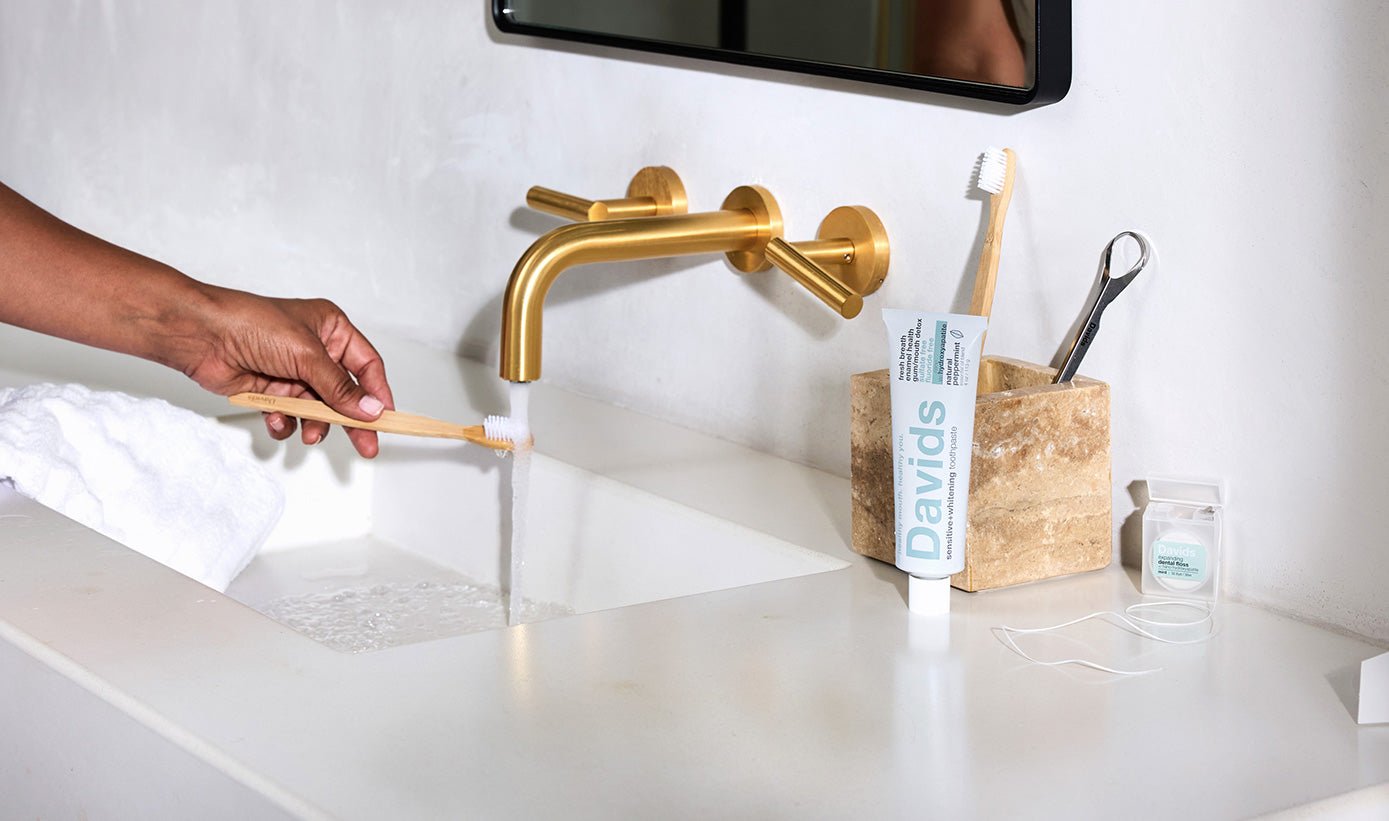When it comes to your dental health, it can be tempting to brush off pesky symptoms. But we’re here to remind you that gum bleeding is a red flag (pun intended) you should never ignore. While there are so many causes of bleeding gums, they can often indicate another issue, such as gum disease, stress, nutrient deficiency, and beyond.
So for the sake of your oral and overall health, let’s dive into some common myths about bleeding gums, debunking the misinformation and empowering you to take charge of your well-being. After all, early action (and prevention) can make a world of a difference for your oral health, and knowledge is one key ingredient for positive action.
myth 1: bleeding gums are normal
Bleeding gums might be common, but they aren’t normal (especially when persistent). Be sure to take note of the severity and duration of your gum bleeding. If it’s persistent, you should visit your dentist as soon as possible since it could be a sign of gum disease (nearly half of all US adults over 30 experience gum disease). Early treatment is key when it comes to bleeding gums and gum disease. Your dentist can give you a treatment plan that can allow you to reverse gum disease so it doesn’t progress to advanced stages like periodontitis.
Along with gum disease, other common causes of gum bleeding include plaque buildup, hormonal changes, medications, rough brushing/flossing, and more. No matter what the cause, know that gum bleeding calls for a dental checkup.
myth 2: you only need to see the dentist if your gums are bleeding
Prevention is key in the world of dental health. We don’t recommend waiting until you need the dentist to go to the dentist, as this approach can miss important opportunities to prevent more severe issues down the line. As always, we recommend dental cleanings and checkups every six months to detect early signs of gum disease, assess gum bleeding, and look out for any other oral health issues before they escalate. During routine visits, your hygienist can use techniques and tools you don’t have at home to perform deep cleanings to remove plaque and tartar buildup. Your dentist can assess your gum health and recommend personalized care routines that prevent gum bleeding, sensitivity, and other complications.
We recommend visiting your dentist every six months, especially (and more frequently) if you experience persistent gum bleeding. They can assess whether the bleeding is a sign of gum disease, confront the stage, and outline a treatment plan. If your gums are actively bleeding, don’t hesitate to get them checked, as gum disease is linked to so many other conditions like heart disease, diabetes, dementia, rheumatoid arthritis, and other inflammatory diseases.
myth 3: you have to brush harder and floss more for bleeding gums
It’s a common misconception that brushing and flossing harder can help your bleeding gums. In reality, this can worsen things. Harder brushing does not equal a deeper clean, and it can actually harm your gums, lead to gum recession, and make them more prone to bleeding and gum disease.
Instead, we recommend a gentle, thorough approach using a soft bristle toothbrush, effective toothpaste, smooth waxed floss, and proper technique. Hold your toothbrush at a 45-degree angle to your gums and clean each tooth with gentle, circular motions. When flossing, glide the floss gently between your teeth and hug each tooth rather than forcing it down.
Be sure to brush twice daily and floss (at least) once daily, avoiding excessive force that can harm your gums. With consistency, this intentional approach can help improve your gum health without the risk of injury, gum bleeding, and discomfort.
myth 4: only people with poor oral hygiene have bleeding gums
While poor oral hygiene can lead to gum bleeding, it’s not the only cause. You can have the best oral care habits and still experience the occasional bleeding gums, and sometimes that feels even more frustrating! As we mentioned earlier in this article, there are so many causes of gum bleeding that aren’t related to your hygiene habits.
- rapid hormonal changes: like pregnancy, menopause, puberty, and menstruation
- certain medications: such as birth control pills, antihypertensive medications, asthma medication, blood thinners, aspirin, chemotherapy, antibiotics, and more
- stress: which can trigger inflammation throughout your body and weaken your immune system, causing gum bleeding, irritation, and infection
- vitamin deficiencies, specifically vitamins C and K, which play important roles in tissue repair and blood clotting
- medical conditions: diabetes and autoimmune disorders can also affect your oral health and cause bleeding gums
Remember, you can be doing everything right and still experience gum bleeding. If that’s the case, give yourself some grace and schedule an appointment with your dentist and primary care doctor to investigate and address the root cause as soon as possible.
myth 5: gum bleeding and gum disease can’t be reversed
The great news is that gum bleeding and the early stages of gum disease can be reversed! That’s why it’s so important to visit your dentist and address the issue immediately. With guidance from your dentist, diligent oral care habits, and some great products, you can work to ease your redness, swelling, and bleeding gums.
Whether you have bleeding gums or not, developing a holistic dental care routine is crucial for your oral and overall health. At Davids, we’re proud to offer an expanding line of premium oral care products that nurture your long-term health. From natural toothpaste formulas crafted with xylitol and nano-hydroxyapatite to soft-bristled bamboo toothbrushes to innovative expanding dental floss, explore our premium products and give your bleeding gums (or perfectly healthy gums!) the love they deserve.







